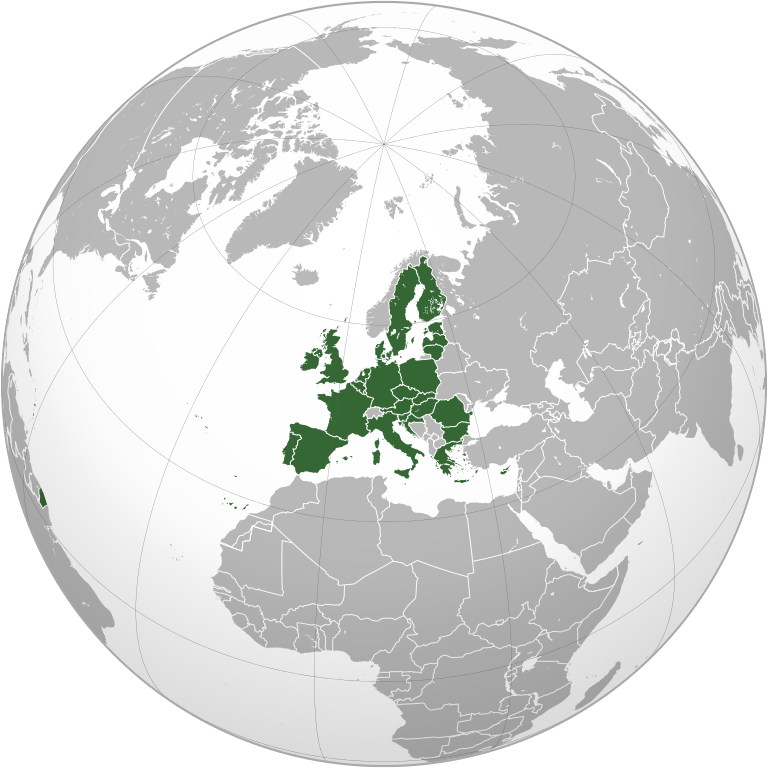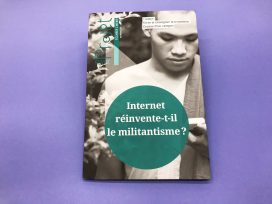Citizenship: Legal and cultural dimensions
Citizenship can mean a lot of things:
1. a formal legal status that links individuals to a state or another established polity (such as the European Union or a federal province); 2. a bundle of legal rights and duties associated with this status, including civil liberties, rights to democratic representation, and social rights to education, health care, and protection from poverty risks; 3. a set of responsibilities, virtues, and practices that support democratic self-government; 4. a collective identity that can be shared across distinctions of class, race, gender, religion, ethnic origin, or way of life (Bauböck: 2008: 3).
Bauböck connects legal and political aspects of status and participation with cultural and identitarian phenomena that have always intermingled within the framework of modern nation-states (Bader 1997, Fox 2005). Indeed, various efforts were made to resolve the constant tension between the legal and the political features of citizenship and their identitarian and cultural underpinnings via nation-building: some states were based on linking political status to ethnic descent, whereas most republics pretended to be “culture-blind”. However, immigration and transnational cultural interconnections have relativized these typologies; and economic and cultural globalization has definitely transcended the legal and political boundaries of sovereign nation-states.

Source: Wikimedia
Even before the formation of the modern nation-state, cosmopolitan aspirations were already emerging: Me velle civis totius mundi non civis oppidi was the answer of Erasmus of Rotterdam in the sixteenth century, when Swiss Reformation leader Ulrich Zwingli offered him citizenship in Zurich. The humanist philosopher is said to have replied that he did not want to become a citizen of a single city, but of the “entire world”. World citizenship in this sense was always one of humanity’s dreams, one considered as honourable as it was unfulfillable. Now globalization has not only razed the fortress of the nation-state (as progress in ballistics did the fortified walls of medieval city-states), it has also created the opportunity for what is called transnational citizenship. Historically, nations provided the framework of modern community and society; they defined (and limited) the space of communication within which political parties and interest groups of all kinds operated, thus creating the prerequisites for equal representation and civic participation. In the welfare state, too, who should be included in and who excluded from the system of mutual support was defined within this national framework. But the universalistic principle of inclusion itself helped migrants gain a highly valued status as residents, without being formal citizens. A person’s national citizenship was thus uncoupled from his or her right to have rights, insofar as international laws, for example to protect migrant labour, and human rights conventions became plausible as independent sources of individual and collective rights. The question at hand is: Between local patriotism and global markets, where is homo politicus located?
World citizenship: Facets and drivers of transnationalisation
The Oxford Dictionary dates the emergence of the term “transnational” to about 1920, as documented by a quotation from an economic text that described Europe after World War I as being characterized by its “international or more correctly transnational economy”. Interestingly, the dictionary provided another source identifying the Christian Church as the sole power that could create the conditions for a “transnational, non-racial democratic polity”. One author, who had “transnational America” in view as early as 1916, is not mentioned: Randolph S. Bourne. While the nations of Europe fought a savage war, this literary critic and pacifist from New York emphasized the special potential of the USA, something he thought could provide the bases for a future world society. The USA, as the “first new nation” of immigrants, clearly did not have recourse to the European bases – either ethnic-cultural or state-bureaucratic – for nation-building and collective identity. On the other hand, Bourne rejected the then-current idea of a “melting pot”: “We are all foreign-born abroad or the descendants of foreign-born, and if distinctions are to be made between us they should rightly be on some other ground than indigenousness.” One should not seek the foundations of American collective identity in a mystified past, as was the case with European nationalism, instead “we must perpetrate the paradox that our American cultural tradition lies in the future.” Bourne drew the conclusion that “America is coming to be, not a nationality but a trans-nationality, a weaving back and forth with other lands, of many threads of all sizes and colors” (Bourne 1916: 87, 92, 96).
At the beginning of the twenty-first century, “transnational” has become a technical, but also a fashionable term. It is used especially in connection with international organizations and the “multis” (transnational corporations, or TNCs). In accordance with the original meaning of the Latin prefix “trans”, it points beyond the usual diplomatic dealings among sovereign nation-states and the customary division of labour among “national economies”; the unit of analysis, not only in international relations, has become Weltgesellschaft (world society, see Luhmann 2000). This did not imply the “end of nation-states”; however, state sovereignty as we knew it has become “anachronistic” (Czempiel 1969). From the macroperspective or bird’s-eye view of the world economy, the glance drifts to the microlevel of Lebenswelt (life world), where we can trace the cross-boundary paths via which people and objects, metaphors and symbols, individual life histories and collective biographies are transferred. It is time for social science and political actors to acknowledge this “paradigm shift” from international to transnational relations, which is also to recognize that a new form of world politics is emerging: citizenship (and governance) beyond the nation-state.
Economic and cultural preconditions of transnationality
From the beginning, the most powerful and conspicuous relativizers of the nation-state were the transnational corporations, with their world-spanning trade and finance transactions. There has been a world market since sailing and techniques of navigation first permitted intercontinental trade, currency exchange, and investment; the Hanseatic League or the spread of Chinese family households throughout the Pacific demonstrate that the postmodern subversion of national borders has its premodern precursors. Yet, capital’s inherent “lack of patriotism” (Vaterlandslosigkeit, Karl Marx) has meanwhile developed beyond the customary relations between parent companies and foreign subsidiaries; economic and financial conglomerates have merged so that, aside from having a legal seat, they are no longer anchored in one particular nation. E-commerce, including business-to-business deals, has further radicalized this despatialization.
Certainly, the prospects of the new economy must be viewed with caution, but state and cultural boundaries already play hardly any role anymore in its leading branches – telecommunications, health care and biotechnology. Elimination of boundaries through “digital capitalism” already has dramatic consequences for taxes and customs – which, after all, are the primary sources of revenue for nation-states and even supranational economic communities like the European Union. Global standards of management and services are joined by the harmonization of trade and economic law through legal firms, auditing companies and consultancies. These need not really have global reach; what we observe is rather a regionalization (in the sense of “continentalization”) of economic domains (North American Free Trade Association, European Union, AEAN, Mercorsur, ECOWAS) or a geographic subdivision, as with the executive board of ICANN (Internet Corporation for Assigned Names and Numbers) and other transnational private-public institutions.
Migrant communities
These examples show that transnational spaces have emerged. Operating in the interstices is a “business class”, a loose conglomerate of managers, consultants and service providers more closely associated with companies and concepts (e.g., the “Apple culture” and the “Linux movement”) than with native countries and native tongues. Border-crossing mobility is not limited to the upper echelons of the labour market; even unskilled workers with precarious residence status have meanwhile become highly mobile and multicultural. This Völkerwanderung (mass migration), complemented by masses of foreign travellers, commuters and retirees in the sunny South, has stimulated much thought about “transnational social spaces” (Faist 2000). Today’s nomads differ from their long-familiar precursors, especially those caught up in the streams of immigration to the USA, Canada, Australia, and France in the nineteenth and early twentieth centuries. Today, “homeland” and “host country” are more closely connected and networks between them are much denser. With cheap transportation and easy communication, not to mention the worldwide reception of “home” television and radio broadcasts via cable, satellite and Internet, permanent settlement no longer seems necessary. Bags were always packed and ready in the diaspora, but usually they remained in the attic; and the back and forth of those times – for example between New York’s Lower East Side and southern Italy or between Chicago and Warsaw – also lacked the emotional routine that now characterizes transnational mobility, and above all it did not have the effects on the structure of entire societies that transnational communities are likely to have today (Ong 1999, Schmidtke/Ozcurumez 2007).
We can now define more precisely as transnational a social field, transcending national affiliation, in which a growing number of people lead a kind of double life. The expropriation of farmers, which tore the agrarian population from the “soil” and drove them into the industrial cities, now finds its counterpart in a kind of “expropriation of borders”. This casts doubt on sociology’s “container vision”; its spatial metaphors referring to closed national societies now seem outmoded. For transmigrants live long term in two or more places, constantly speak two or more languages, possess en masse two or more passports, and pass continually in both directions through makeshift households, networks of relationships and spaces of communication. From this perspective, migration “routes” count more for cultural studies than the “roots” of a migrant’s personal identity in national collectivities (Clifford 1997, Hannertz 1996). All of which, perhaps combined with and crowned by the World Wide Web, a medium of transnationalization par excellence, leads to a despatialization that, unlike classic emigration, permits “virtual proximity”. This allows communities to maintain themselves even without constant face-to-face encounters, as the poles – “at home” and “abroad” – of such transitory existence finally become almost interchangeable.
Religious pluralism
Wanderers between the worlds generally bring their native gods and rites in their bags, for people who are supposed to have lost their ties are especially likely to seek “ties back” (Latin re-ligere), which is the literal translation of religion. Religious communities have always transcended national borders; spiritual belief is especially suitable for “stretching” and reconstructing in what, following the scattering of Jewish and early Christian congregations, became known as “the diaspora”. While the supralocal spread of religious ideas and communities is not new in principle (the Catholic Church can be seen as the first-ever agent of globalization), the transnationalization of religion is no longer identical to Christianization; nor has secularization, which became typical for the Christian societies of Europe, prevailed as a global model.
Though religious life, along with the dominant cultures based on it, are relativized by transnational migration, emigration can revive religious feelings of belonging. In regard to world society, religion pushes globalization forward precisely by resisting the profane effects of economic globalization and forming particularist congregations. Diaspora, once experienced as catastrophic, is no longer an exception in the religious pluralism of our time; and at the same time, protection of religious freedom has improved all over the world, so that imported religious symbols are becoming visible again in the public space of secularized societies. Globalization is thus not limited to corporate mergers, Internet communication and financial transactions. Religious communities, too, travel around the globe, and not only with the organizational and functional support of world churches, but also and especially as decentralized grass-roots movements, as an unofficial, heterodox, self-founding, religious civil society.
Hybrid popular mass cultures
That which can be said about religious coexistence is also true for the diffusion and mixing of multicultural societies in general. A characteristic of this world of hyphens is provided by “world music” (e.g., in the work of Peter Gabriel or the Putumayo label) – a collage of disparate materials that often fuses completely contrary styles. In such mixtures, which are described as “hybrid” in allusion to biological crosses, things grow together that would not sound compatible to any purist’s ear. But proponents of musical and other cultural mixtures point to more or less successful combinations dating all the way back to the origins of art. Indeed, on the whole, the creativity of cultures is never based on keeping the foreign at a distance. Rather, it is based on “extraordinary” borrowings, on mimetic appropriation and the constant exchange of inventions, on innovation at the margins and on the acquisition of the seemingly unassimilable. Seen in this way, phenomena of “world culture” merely signal a further stage in the hybridization of hybrid cultures. All efforts toward canonical restoration are futile and the barriers between high and low culture have been razed too (Appadurai 1996, Tomlinson 1999).
The “wild” combining of artifacts, symbols and identities began as the primary means of expression and communication, language itself, underwent “creolization” at the points of contact between two or more groups of speakers. The process of assimilation was usually asymmetrical and often violent, but, at the same time, hybrid constellations mirror the growing interdependence of world society, which of course excludes as often as it includes. In this process, components of all cultures are uncoupled from local roots and contexts; this has often been interpreted as “standardization” and, since the origins of hegemonial popular culture can be traced to the United States, as Americanization. There is much to be said for this assumption, if we observe the selectivity and modes of influence of the culture industry, the effects of which sometimes amount to a kind of cultural extinction; on the other hand, fulfilling the world society’s structural demands does not lead to complete cultural uniformity.
In the terminology of cultural anthropology, culture must be conceived as bounded and embedded, and thus as a field that can be cultivated only in a particular time and place. The global economy and technology require and produce universal phenomena like money and standardized systems of experts, which are of necessity oblivious to local origins. Abstraction is the only thing that permits communication and creates trust. And although cultural enclaves do resist standardization, it is now rare for this aloofness to achieve the power of a fundamentalist resistance aimed at preserving one’s own culture. For however much desires for distinctions can be agitated and pitted against each other in the “culture wars”, in the end, they remain oriented toward a structure of common differences. Popular mass culture permits travel through time and space without requiring viewers and listeners to leave their homes. For the first time, “major events” – including warlike conflicts, athletic competitions and appearances by entertainment stars – reach global audiences via electronic mass media such as CNN and MTV. There are topics that enthral literally the entire world, and there are growing audiences for global stagings. But this thematic concentration is accompanied by a fragmentation of local audiences, which again illustrates the dialectics of globalization and localization. Social media are the latest proof of this glocalization of communication.
Transnational citizenship: Constructing a demos beyond borders
These tendencies have all relativized the traditional concept of citizenship as being bound to the entitlements and duties determined by a nation-state. If the nation, in combination with government (incorporating the mechanisms of bureaucratic agencies and popular representation), has been the fulcrum of personal identity and the condition for social affiliation and membership since the nineteenth century, at the beginning of the twenty-first century, flexible forms of belonging and community transcending the nation-state challenge the representativity and legitimation of democratic rule. Now the question is: between local cultures and global markets, how can a cross-border demos be constructed?
Transnationaliztion of citizenship via migration
Emigration and immigration have been the main causes of a growing incongruence between cultural and political collective identities: emigrants from country A turned their back to their former homeland and forged new affinities in country B even if many of them retained some emotional ties to their country of origin (A) and tended to assimilate to their country of choice (B) via compatriate communities from country A. The same is true for immigrants: while they centred their lives on a new location (B) they retained more or less strong loyalties to their “heimat” (A), sending money home and keeping up-to-date on what was going on there while continuing to speak their mother tongue (van Bochove et al. 2010, Kaya 2012).
As already mentioned, cheap air-fares, mass produced communication devices with a global reach and personal contacts via social media have further relativized the dichotomy between country A and B; real-life transnational communities have emerged. Thus expatriates may want to participate in the political life of their former homeland and may even be inclined to vote in their former constituencies or as a particular voting bloc of non-resident citizens from abroad, and immigrants may stipulate voting and other participatory rights to overcome their status as non-citizen residents (Bauböck 2005, Lopez-Guerra 2005, Rubio-Marin 2006, Owen 2011). As immigrants here (A) are expatriates there (B), they might even have the idea of being a part of two “demoi” and contributing to the political agenda of two states. It was exactly this prospect that conjured up the evil of “…yalty” in the minds of the administrative agencies in the Westphalian system of distinct and incongruous nation-states (Benhabib 2006, Schmidtke/Ozcurumez 2007).
Nevertheless, nation-states and political elites have allowed not only for the electoral inclusion of citizens living abroad (which is supported by ethnic conceptions of nationhood beyond a territorial state) but also for electoral rights of non-citizen residents. One reason is the desirability of the political integration of immigrants, underpinned by civil and social rights; other explanations can be drawn from historical links (e.g. a common, immemorial past, the Commonwealth etc.), cultural affinities and linguistic community. Bauböck (2005) has sketched four ideal-typical positions speaking for or against this undermining of traditional concepts of national citizenship:
(i) Civic republicans would argue that “only citizens who are present in the polity can govern themselves by participating in making laws” (685); a republic may be open to newcomers but those should apply for full citizen rights by naturalization and giving up former citizenship(s).
(ii) Ethnic nationalists would “support the inclusion of expatriates but reject political rights for non-citizen residents” because they conceive the nation as a community of culture.
(iii) Liberal democrats would, on the contrary, hold that voting rights for expatriates might undermine “the integrity of the democratic process since those who live permanently abroad should not be able to influence the making of laws to which only internal residents will be subjected” (686, c.f. López-Guerra 2005); however, they would favour voting rights for non-citizens just because long-term residents are effectively subjected to the local political authority and its laws, so non-citizens should therefore have “equal rights to representation and participation in the making of these laws” (686).
(iv) Cosmopolitans would claim for voting rights and participation on the grounds of an all-affected principle: quod omnes tangit ab omnibus approbetur. In this case, the demos is not a given entity of people but is constructed by way of those decisions that have a “profound impact on the interests of another country’s population” (686).
As one can object to all four concepts, Bauböck introduces a fifth principle he calls “stakeholder citizenship” (2008). This involves a mixture of republican and liberal-cosmopolitan principles. With regard to the former, it retains the idea that citizenship guarantees the status of full membership in a self-governing polity and that voting rights should generally be attached to such status. In accordance with liberal-cosmopolitan principles, stakeholder citizenship would give stakeholders a subjective claim to membership and electoral rights. Bauböck provides a balanced conclusion: “Stakeholdership should… be less vague and overinclusive than affected interests. […] [It] would require the political inclusion of immigrants, but – different from inclusion derived from mere territorial subjection – it could justify the condition of long-term residence and the common requirement that immigrants have to apply for naturalization instead of being automatically turned into citizens. Stakeholdership would also permit (although probably not require) extending the vote to expatriates, but it would exclude those who have never lived in the country and would not give access to citizenship to persons whose interests lie in economic investment or tax evasion but who do not take up permanent residence” (2005: 686).
Transnationalization of citizenship via stakeholdership and participation
Emigration and immigration have given rise to a revision of common understandings of how a people is constituted and what democracy as rule of the people means. The literature distinguishes two principles – the all-subjected principle, where the guiding idea is “that those subject to a rule also should be its authors”; and the aforementioned all-affected principle “that all those affected by a political decision ought, directly or indirectly, to have a say in its making” (Mäsström 2011: 120, 117). The first rule starts from a given people, be it the (very exclusive) demos of the Greek polis or the (more inclusive) demos of a modern republic. The second rule shifts the focus from a given people within polis and nation-state boundaries to (the justifying of) people-making within a democracy whose political agenda becomes transnational as well as transcultural. This does not only mean that “the demos needs to extend to everyone in a particular territory” (Gould 2006:49), it enlarges the citizenry beyond the city walls and state borders. The all-affected principle negotiates and politicizes the boundaries of decision-making.
With regard to the watering down of national sovereignties, all citizenship regulations tend to be conservative and exclusive, the naturalisation processes within most states continue to remain rigid and dismissive. As already shown, mass immigration has put the accepted status of national citizenship in doubt and the number of people with multiple citizenships in Europe has seen considerable growth. This growth in the possession of one or more nationalities is, however, viewed with suspicion by many states, as they still believe it to promote conflicts of loyalty. The children of immigrants are therefore often forced as adults to decide between their cultural and geographical origins. For example, second generation Turkish settlers in Germany will be made to decide between becoming Turkish or German; a decision which could then ultimately lead to a loss of their EU citizenship. Something which of course doesn’t happen in families of mixed European citizenship, where, should the offspring decide to become French, Dutch, German or British, they would nonetheless retain their EU citizenship.
Nevertheless, the national monopoly on citizenship is gradually beginning to weaken. A great many practical and normative arguments exist for the granting of transnational citizenships and the development of voting rights for foreign nationals. The economic and cultural impacts of globalisation are, for example, gradually creating scenarios, where, within many areas, long-term foreigners are able to claim a greater say in what goes on around them. Meanwhile, in law scholarship and within the social sciences, the term “global rights” is gaining in influence. Global rights are rights granted to people independent of their locations and are supported by wide ranging human rights standards. Some of these standards themselves contradict national laws, and yet their impacts can, as in the case of the German Asylum Reform of 1992, often only be reduced through procedural limitations.
Such international developments suggest that reforms of the state citizenship regime are overdue and that these reforms should lead to more inclusive and flexible judicial statuses for people worldwide. Bauböck has repeatedly proposed the “stakeholder principle” as a broader successor concept to the idea of citizenship: “Stakeholders […] are those who have a stake in the polity’s future because of the circumstances of their lives.” The so-called “all-affected principle” goes a step further. It suggests that we can all be affected by global catastrophes and that therefore, we are indeed all “all-affected”. And if the role of nature as protagonist can be recognised in this sense, then why not also consider the proposal, that, not only humans, but also non-human sentients and other objects or phenomena should be formed into a “parliament of the things” (Latour)? Furthermore, where the rights of future generations play a role in contemporary decision making, there has been debate regarding the consideration of specific voting rights for children, to be exercised in absentia by their parents (Thiemann/Goerres 2009).
One note on spatial inclusion: Suppose we take the term “global society” as being not just a metaphor (as do the majority of sociologists), but a reality forged by communications, transport and free exchange within a globalized social sphere. It can then be argued that the space within which to exclude someone consequently ceases to exist and that societal exclusions become completely unjustifiable (Stichweh 1997). Stichweh came to the conclusion that exclusions nowadays are only internal and temporary and that a dynamic exists, within which an act of inclusion occurs with every (attempted) act of exclusion. This is best displayed in total institutions. For example, in a jail, criminals are taken out of the society within which they would normally exist, yet in most circumstances this occurs with the explicit aim of then ensuring their ultimate reintegration into the society from which they have temporarily been removed.
Another note on generational inclusion: The potential heteronomy of future generations will ultimately be determined by their own future circumstances. People today simply cannot judge what coming generations will do and are equally unable to preordain what they themselves should do or allow to be done to them. The concept of sustainability (and indeed that of budget balancing as recently framed within the fiscal pact in many OEEC-states) has, however, inaugurated an important proviso. Namely, it is advisable for people living within a dynamic, growing, global society to not only not use more of their resources than can then be realistically regenerated, but also to abstain from impinging so much upon future generations, that dangerous, existence-threatening tipping points are both reached and surpassed.
A graphic example of unacceptable levels of heteronomy for future peer groups is the programme for the “temporary” storage of atomic waste, an issue for most EU member states. As part of this programme, waste is temporarily placed in a location while its final resting place is discussed. These discussions, however, tend to last at least two generations, despite the fact that the radioactive outfall from this temporary placement can have a lasting impact upon an area for thousands of years. In this example, the temporal and spatial elements of concern are therefore united, as the risks of atomic energy hardly allow themselves to be confined to either national territories or to specific periods of time. Right now, numerous atomic waste shipments are travelling across national boundaries throughout Europe. An international supervisory commission, however, only exists in the most rudimentary of forms and this despite the fact that a recent EU Commission report stated that the majority of European reactors are insufficiently secure. This example illustrates how political stakeholders can be on the receiving end of international decisions, regardless of state and/or cultural boundaries (Mason 2009, Bauböck 2009b, Owen 2011).
It would, however, likely be difficult to reconcile stakeholder citizenship with the present system of state citizenship. “Cultural” grounds will doubtless be raised. By which I mean the ethnic and religious differences between nations, which, from a traditionalist perspective, often preclude supranational integration. It is said, for example, that supranational bodies pay too little attention to the respective particularities of individual groups (such reasoning is presently being used by various groups in Spain, Belgium and Scotland to demand greater regional independence from the central governments in these countries). Naturally, such objections tend to ignore the binding relationships between various peoples across national borders. Historically, these cross border affinities have in fact been strongly emphasized, and never more so than in post-war societies where long standing enmities are gradually reduced through transcultural exchanges and political co-operation. An exemplary model for this can be seen in the case of Germany and France, while moves are also being made in this direction in, for example, the ethnic and religious communities of the countries of the former Yugoslavia.
Prospects for supranational citizenship: The case of the European Union
The challenge then is to develop a concept of citizenship that is wide enough to address the ways in which national citizens are affected by global problems of all kinds (e.g. climate change) and concrete enough to represent the identitarian and communitarian bases of being a citizen in the context of a particular Lebenswelt. The European Union, until now, provides only a rather embryonic form of citizenship, limited to a formal legal status. The existence or even possibility of a European demos is disputed and contested. “European Union citizenship” per se does not yet exist as the individual EU states continue to defend their right to give and take citizenship as a national privilege. Behind this fiercely defended national right lurk the ancient, never fully applied and increasingly undermined myths of the national union of land, culture and ethnology. Whether German, Polish or French, citizenship is determined either through birth or a demanding process of naturalisation. In the case of official national identity, it would appear that there is, as yet, no third way.
For the success of such supranational ventures, high levels of empathy and well thought out routines for co-operation are prerequisite, as well as the ability and desire to understand your counterparts. What is, however, uncertain, is whether a transnational citizenship then subsequently develops out of such a process, bestowing the citizens concerned with institutionally secured and enforceable rights and duties. In other words, rights which aren’t just morally demanded, but are also successfully exercised. A citizen of the European Union is, according to article 20 of the Treaty on the Functioning of the European Union, an individual who possesses the nationality of an EU member state. Citizenship of the European Union is therefore an extension, rather than a replacement, of national citizenship. European citizenship rights include the right to appeal to EU representatives, to instigate new legal proposals and to participate, both actively and passively, in elections relating to the various European institutions. Additional rights bestowed upon European citizens include the freedom of movement within and between EU territories and certain residential rights for both them and their dependents. These residential rights have also been streamlined in order to reduce to a minimum the administrative effort involved in establishing one’s entitlement to them. Limitations have also been placed on the circumstances within which these rights can be refused. In fact, every citizen of a European Union nation has the right to permanent residency within any other EU state so long as they have spent five or more years uninterrupted within the said state’s territory without committing any offences for which action has had to be taken against him or her. This right comes without further requirements and also applies to any familial dependents of the individual concerned – regardless of their own nationality – so far as they themselves have also spent five years uninterrupted within a member state. Both EU citizens and their dependents also have a right to the diplomatic and consular services of all EU member states when in a country not of the European Union.
How then would the application of a regional “all-affected” principle build upon the status quo? As regards a statement of transnational citizenship, the participational rights of residents within European Union states could be improved upon by adopting the proposals suggested at the Arhus convention: for example, enabling citizens to participate in national votes, citizen initiatives or class actions (Wallrabenstein 2012).
The following European programmes are already in place to promote similar initiatives and should lead to changes in this direction:
– Council Decision 2010/37/EC of 27 November 2009 on the European Year of Voluntary Activities Promoting Active Citizenship (2011) aimed at creating conditions that enhance the participation of civil society in voluntary activities, as well as increasing the visibility of volunteering.
– Council Decision 2007/252/EC of 19 April 2007 has established for the period 2007-13 the programme “Fundamental rights and citizenship” as part of the General programme “Fundamental Rights and Justice”; it aims to promote the development of a European society based on respect for fundamental rights, to strengthen civil society and encourage an open and transparent dialogue, to fight racism and xenophobia and to improve mutual understanding between the judicial and administrative authorities and the legal professions.
– Decision No 1904/2006/EC of the European Parliament and of the Council of 12 December 2006 established for the period 2007-13 the programme “Europe for Citizens” to promote active European citizenship; it may create the preconditions for a European demos by developing a European identity among European citizens based on recognised common values, history and culture, and by fostering a sense of ownership of the European Union (EU) among its citizens.
The Charter of Fundamental Rights was more concrete still. It recognises a range of personal, civil, political, economic and social rights of EU citizens and residents, enshrining them into EU law. It is grouped into six major fields which I would like to quote extensively because they are almost unknown to the common European citizen:
Chapter I: dignity (human dignity, the right to life, the right to the integrity of the person, prohibition of torture and inhuman or degrading treatment or punishment, prohibition of slavery and forced labour);
Chapter II: freedoms (the right to liberty and security, respect for private and family life, protection of personal data, the right to marry and found a family, freedom of thought, conscience and religion, freedom of expression and information, freedom of assembly and association, freedom of the arts and sciences, the right to education, freedom to choose an occupation and the right to engage in work, freedom to conduct a business, the right to property, the right to asylum, protection in the event of removal, expulsion or extradition);
Chapter III: equality (equality before the law, non-discrimination, cultural, religious and linguistic diversity, equality between men and women, the rights of the child, the rights of the elderly, integration of persons with disabilities);
Chapter IV: solidarity (workers’ right to information and consultation within the undertaking, the right of collective bargaining and action, the right of access to placement services, protection in the event of unjustified dismissal, fair and just working conditions, prohibition of child labour and protection of young people at work, family and professional life, social security and social assistance, health care, access to services of general economic interest, environmental protection, consumer protection);
Chapter V: citizens’ rights (the right to vote and stand as a candidate at elections to the European Parliament and at municipal elections, the right to good administration, the right of access to documents, European Ombudsman, the right to petition, freedom of movement and residence, diplomatic and consular protection);
Chapter VI: justice (the right to an effective remedy and a fair trial, presumption of innocence and the right of defence, principles of legality and proportionality of criminal offences and penalties, the right not to be tried or punished twice in criminal proceedings for the same criminal offence).
Since 1995, the European Ombudsman, on behalf of Europe’s citizens, has been investigating cases of alleged maladministration by European Union (EU) institutions or bodies, that is, the European Commission, the Council of the European Union, the European Parliament, etc. The EU citizenship report of 27 October 2010 “Dismantling the obstacles to EU citizens’ rights” (COM(2010) 603 final) has identified the main obstacles that EU citizens may still confront in their private, academic or professional life, when consuming goods and services or in their role as political actors.
Conclusions and recommendations
1. There is a continuous tension between (inclusionary) citizenship and (exclusionary) cultural identity. By means of exclusion, ethno-nationalism wishes to resolve this tension in a destructive and often militant fashion. As a result of its cultural blindness, republicanism dispels the tension by ignoring it. In most cases state authorities can trust transmigrants who have created truly transcultural spaces. They predominantly identify with the local community of their compatriots and with the wider urban community as well as with families and relatives at home – to whom they pay visits, make phone calls and eventually send remittances. However, they rarely maintain strong political loyalties relating to their country of origin. Localism and transnationalism challenge the perceptions of the established domestic populations only insofar as their ethnic and/or religious identities are concerned.
2. Global communication and cultural industries, transnational migration and international market relations have led to the relativization of state borders, rendering purely national affiliations a fiction and paving the way for a significant number of instances of dual or multiple nationality. Awarding dual and multiple citizenships irrespective of cultural, ethnic and religious background should therefore be seen as a more effective integration tool than assimilationist policies that operate on a legal level.
3. Global problems such as climate change or other environmental risks, the crisis of financial markets and the abuse of human rights have led to the political demands of participation extending beyond nation-state borders and the opening up of a cosmopolitan arena beyond the nation-state and the United Nations system. Being “all-affected” is not sufficient in and of itself to guarantee effective participation; the stakeholder principle must be supported by effective citizenship rights (voting, access to the public sphere, recognition of NGOs etc.)
4. The European Union serves as an advanced example of an institution that provides a basis for supranational citizenship. Even though the EU is the result of national citizenship, it is “over-determined” by numerous cosmopolitan elements. Through supranational legal title, rights of participation of a moral nature are secure and can be effectively exercised. The EU thus provides a replicable model of a regional union that supports supranational citizenship.
Bibliography
Appadurai, A. (1996): Modernity at Large. Cultural Dimensions of Globalization, University of Minnesota Press.
Bader, V. (1997): “The Cultural Conditions of Transnational Citizenship. On the Interpenetration of Political and Ethnic Cultures”, Political Theory 25, no. 6, 771-813.
Bauböck, R. (1994): Transnational Citizenship. Membership and Rights in International Migration, Elgar.
Bauböck, R. (2005): “Expansive Citizenship: Voting beyond Territory and Membership”, Political Science and Politics 38, no. 4, 683-87.
Bauböck, R. (2008): Stakeholder Citizenship: An Idea Whose Time has Come? Migration Policy Institute.
Bauböck, R. (2009a): “The Rights and Duties of External Citizenship”, Citizenship Studies 13, no. 5, 475-99.
Bauböck, R. (2009b): “Global Justice, Freedom of Movement and Democratic Citizenship”, European Journal of Sociology, 50, no. 1, 1-31.
Benhabib, S. (2006): Another Cosmopolitanism, Oxford University Press.
Bochove, M. van, K. Rusinovic and G. Engbersen (2010): “The multiplicity of citizenship: Transnational and local practices and identifications of middle-class migrants”, Global Networks 10, no. 3, 344-64.
Bourne, R. (1916): “Trans-national America”, Atlantic Monthly 118, 86-97.
Braidotti, R. and P. Hanafin (eds.) (2012): After Cosmopolitanism, Routledge.
Clifford, J. (1997): Routes, Travel, and Translation in the Late 20th Century, Harvard University Press.
Faist, T. (2000): The Volume and Dynamics of International Migration and Transnational Social Spaces, Clarendon Press.
Fox, J. (2005): “Unpacking ‘Transnational Citizenship'”, Annu. Rev. Polit. Sci. 8, 171-201.
Hannertz, U. (1996). Transnational Connections: Culture, People, Places, Routledge.
Held, D. (1995): Democracy and the Global Order. From the Modern State to Cosmopolitan Governance, Stanford University Press.
Kaya, A. (2012): “Transnational Citizenship: German-Turks and liberalizing citizenship regimes”, Citizenship Studies 16, 2, 153-72.
Lopez-Guerra, C. (2005). “Should Expatriates Vote?”, Journal of Political Philosophy 13, no. 2, 216-34.
Luhmann, N. (2000): Die Politik der Gesellschaft. Suhrkamp.
Mason, A. (2009): “Environmental Obligations and the Limits of Transnational Citizenship”, Political Studies 57, 280-97.
Näsström, S. (2011): “The Challenge of the All-Affected Principle”, Political Studies 59, 116-34.
O’Brien, R., A. M. Goete, J. A. Scholte and M. Williams (2000): Contesting Global Governance. Multilateral Economic Institutions and Global Social Movements, Cambridge University Press.
Ong, A. (1999): Flexible Citizenship. The Cultural Logics of Transnationality, Duke University Press.
Owen, D. (2011): “Transnational Citizenship and Rights of Political Participation”, Noramative Orders Working Paper 06 / 2011.
Rosenau, J. N. and E. O. Czempiel (eds.) (1992): Governance Without Government: Order and Change in World Politics, Cambridge University Press.
Rovisco, M. and M. Nowicka (eds.) (2001): The Ashgate Research Companion to Cosmopolitanism, Ashgate.
Rubio-Marín, R. (2006): “Transnational Politics and the Democratic Nation-State: Normative Challenges of Expatriate Voting and Nationality Retention of Emigrants”, New York University Law Review 81, no. 1, 117-47.
Schmidtke, O. and S. Ozcurumez (eds.) (2007): Of States, Rights, and Social Closure: Governing Migration and Citizenship, Palgrave.
Snel, E. G., Engbersen and Leerkes, A. (2006): “Transnational involvement and social integration”, Global Networks 6, no. 3, 285-308.
Stichweh, R. (1997): “Inklusion/Exklusion, funktionale Differenzierung und die Theorie der Weltgesellschaft”, Soziale Systeme 3, 123-36.
Stoker, G. et al. (2011): Prospects for Citizenship, Bloomsbury Academic, doi:10.5040/9781849662444.
Goerres, A. and G. Thieman (2009): “Kinder an die Macht? Mögliche Folgen eines Treuhänder-Wahlrechts für Eltern”, Politische Vierteljahresschrift 50, 50-74.
Tomlinson, J. (1999): Globalization and Culture, Chicago University Press.
Wallrabenstein, A. (2012): “Zum Vergassungsrecht der Unionsbürgerschaft”, in Bäuerle, M. et al. (eds.), Demokratie-Perspektiven, Mohr Siebeck, 741-63.








